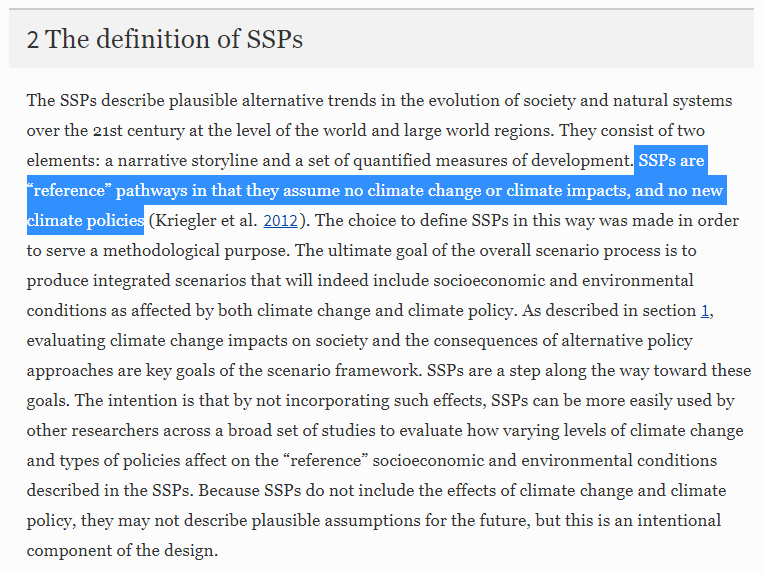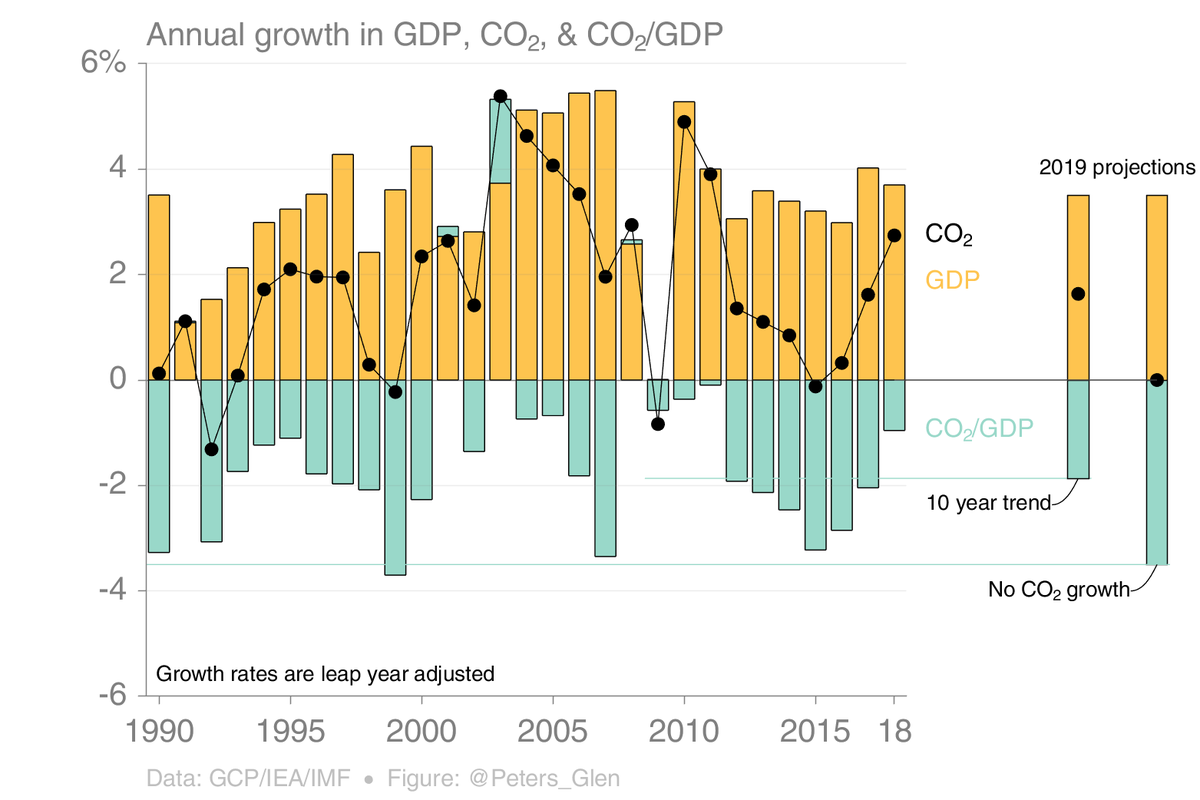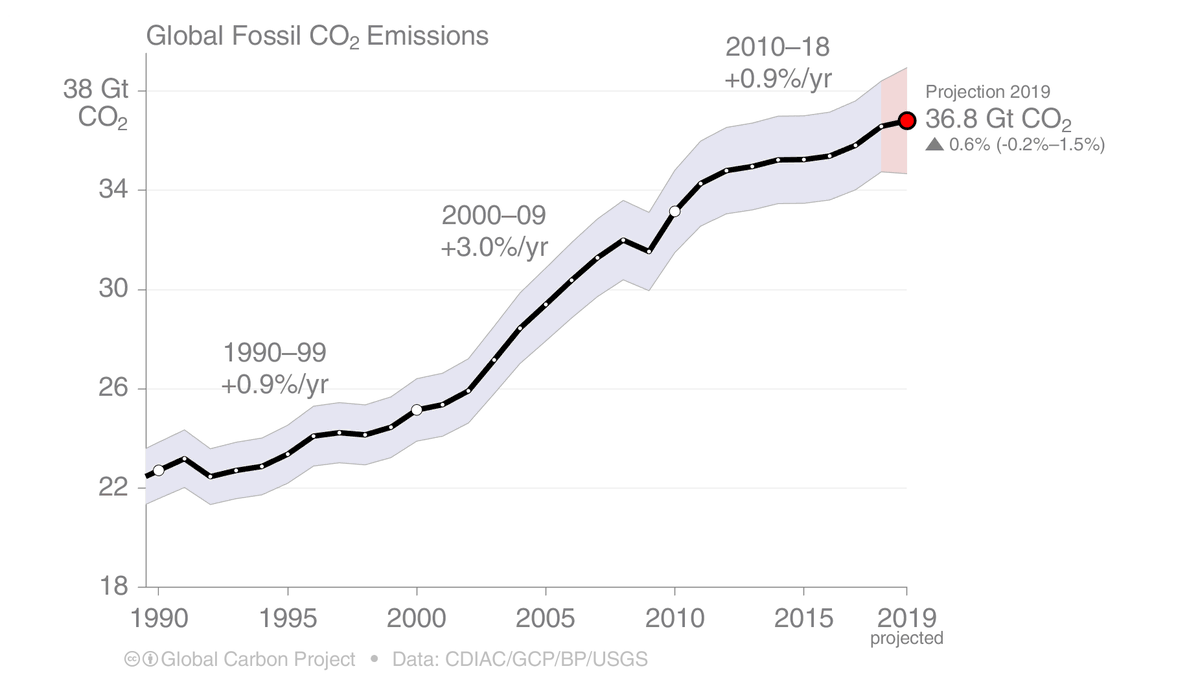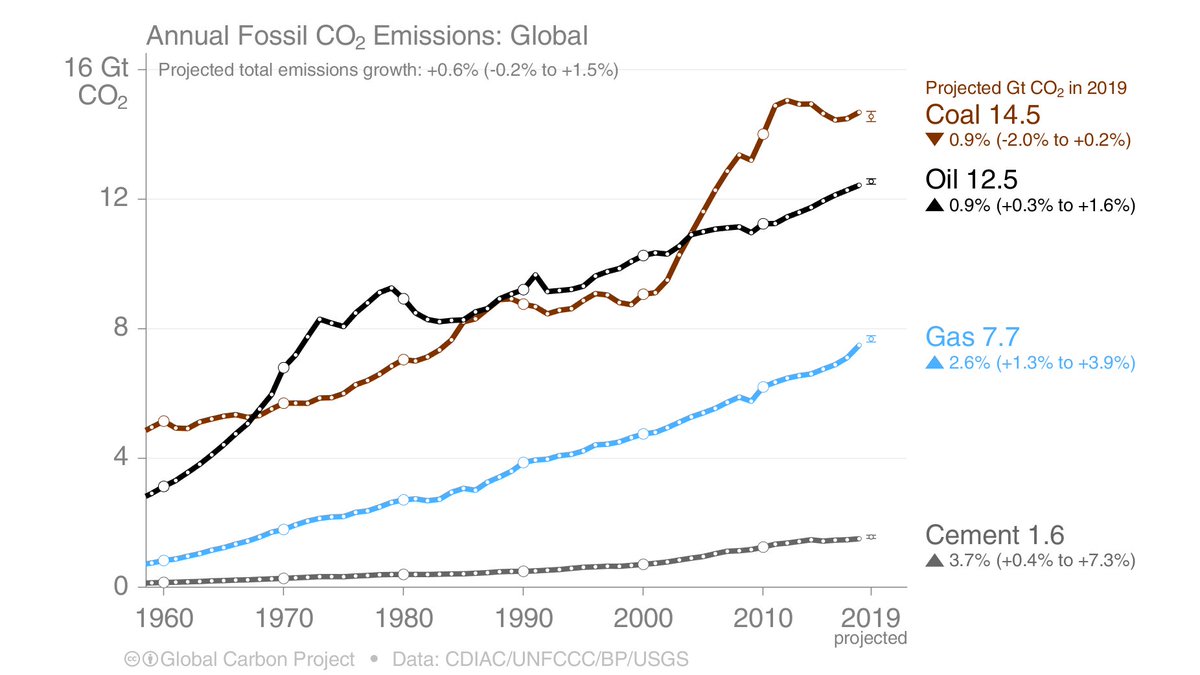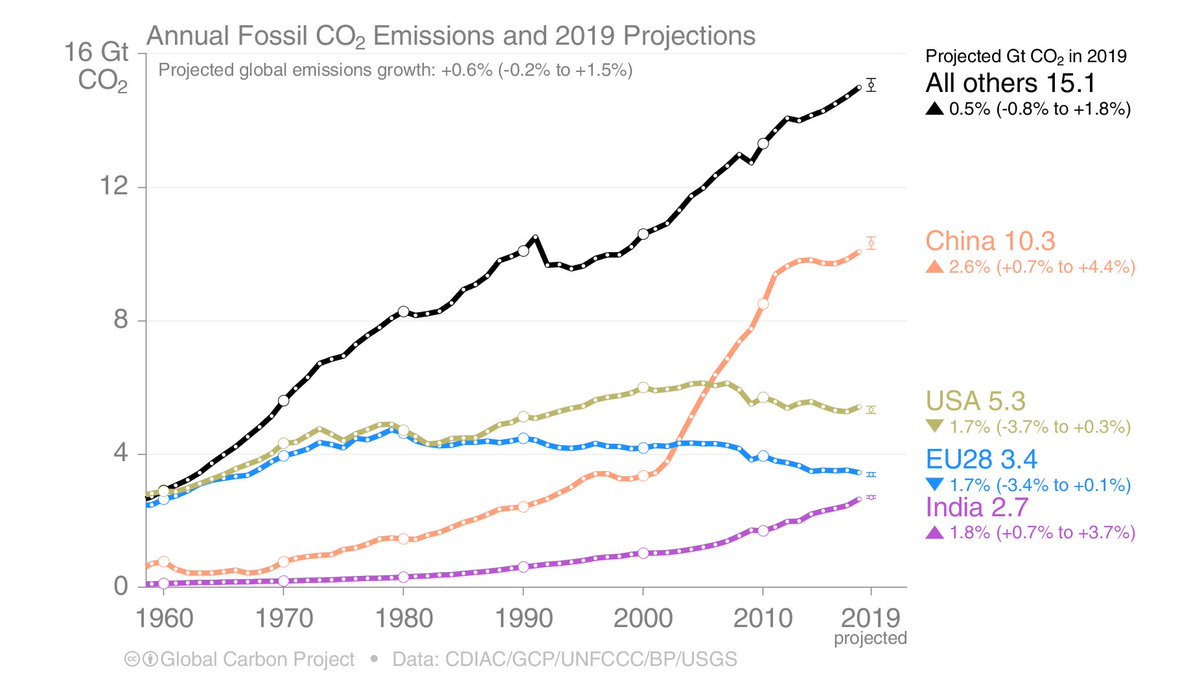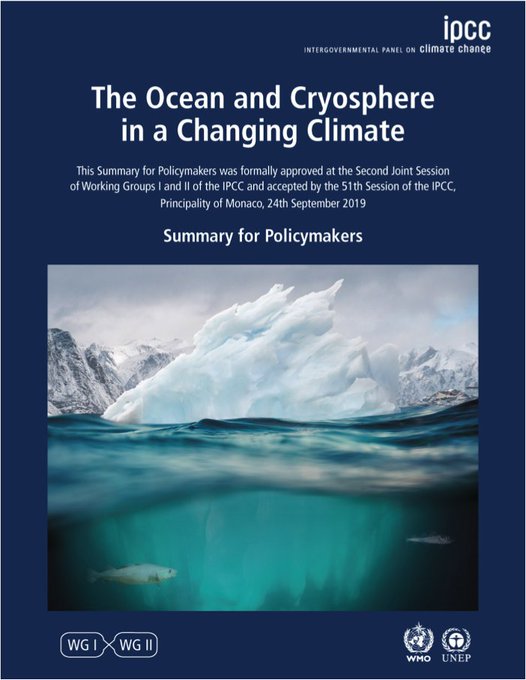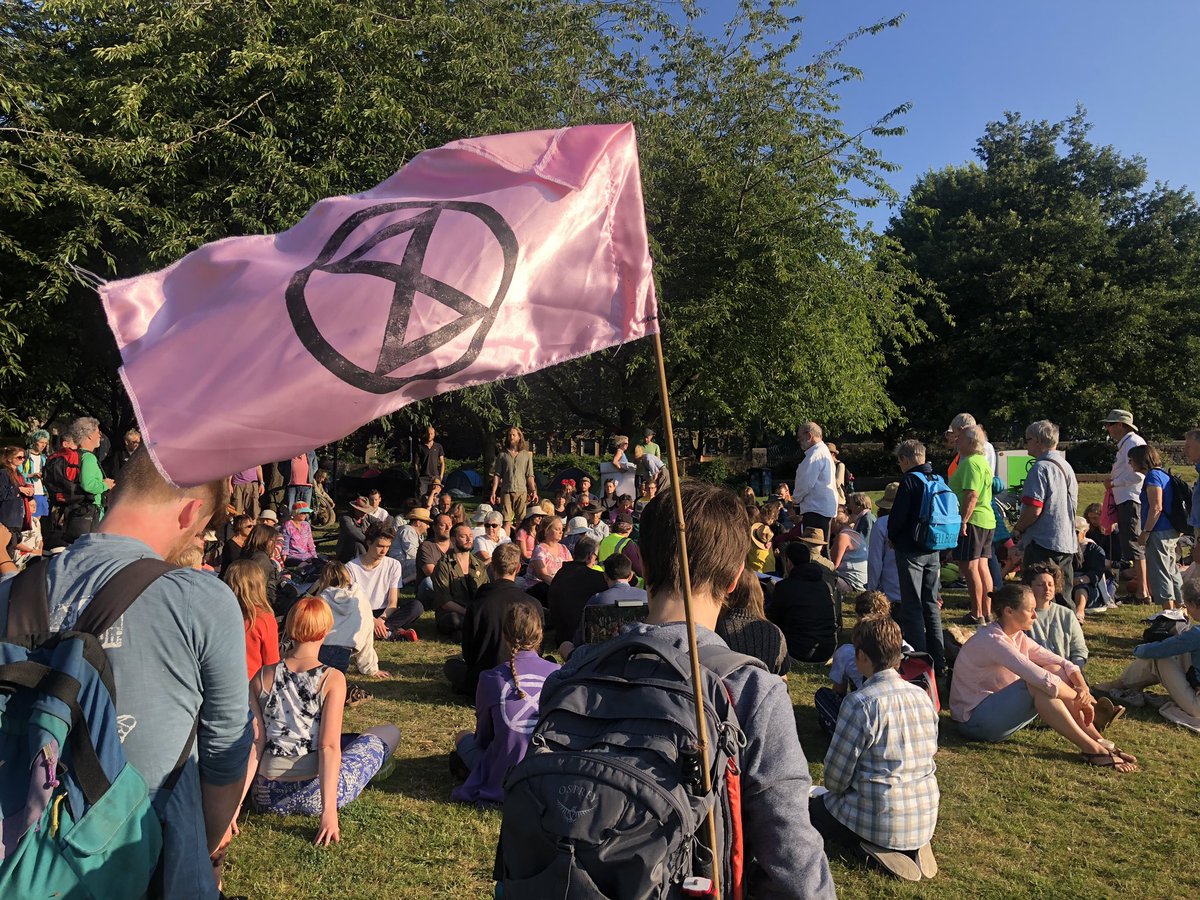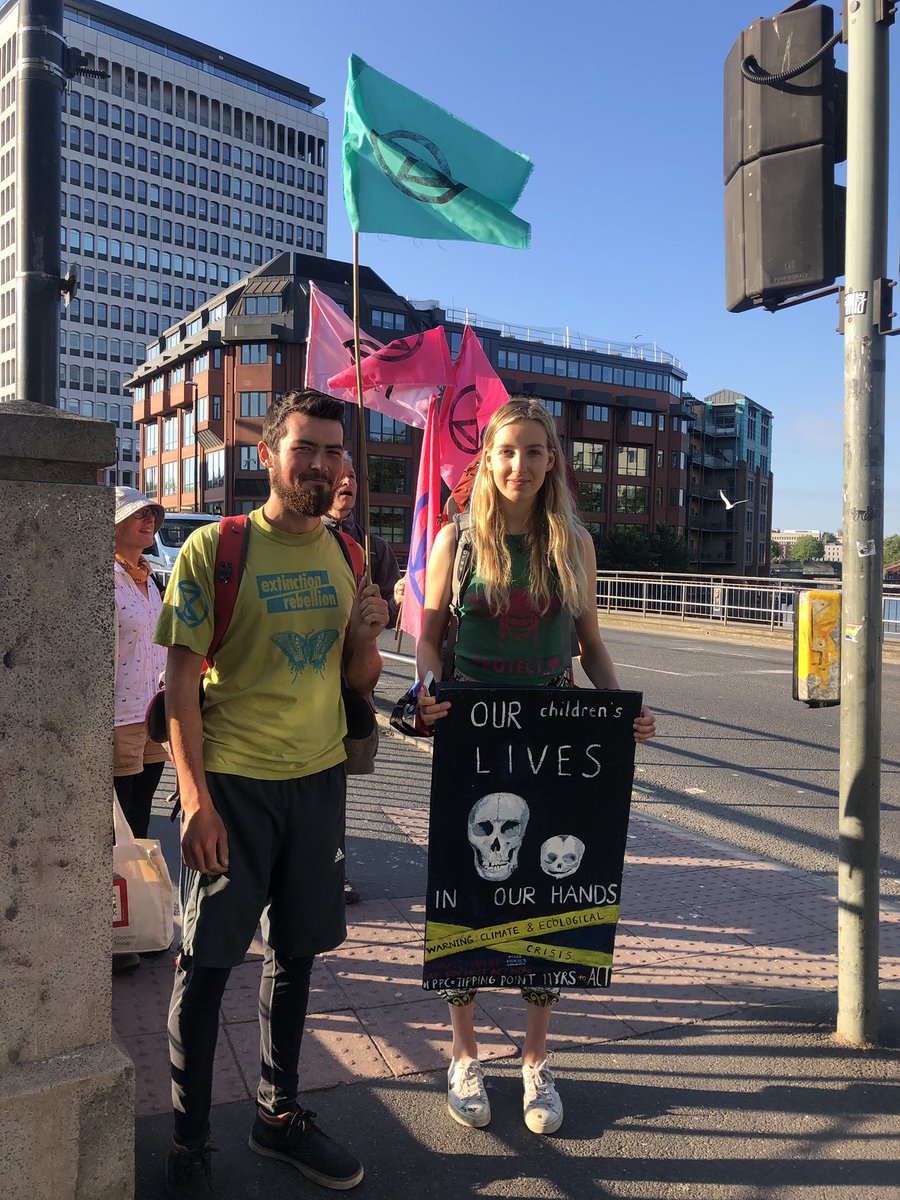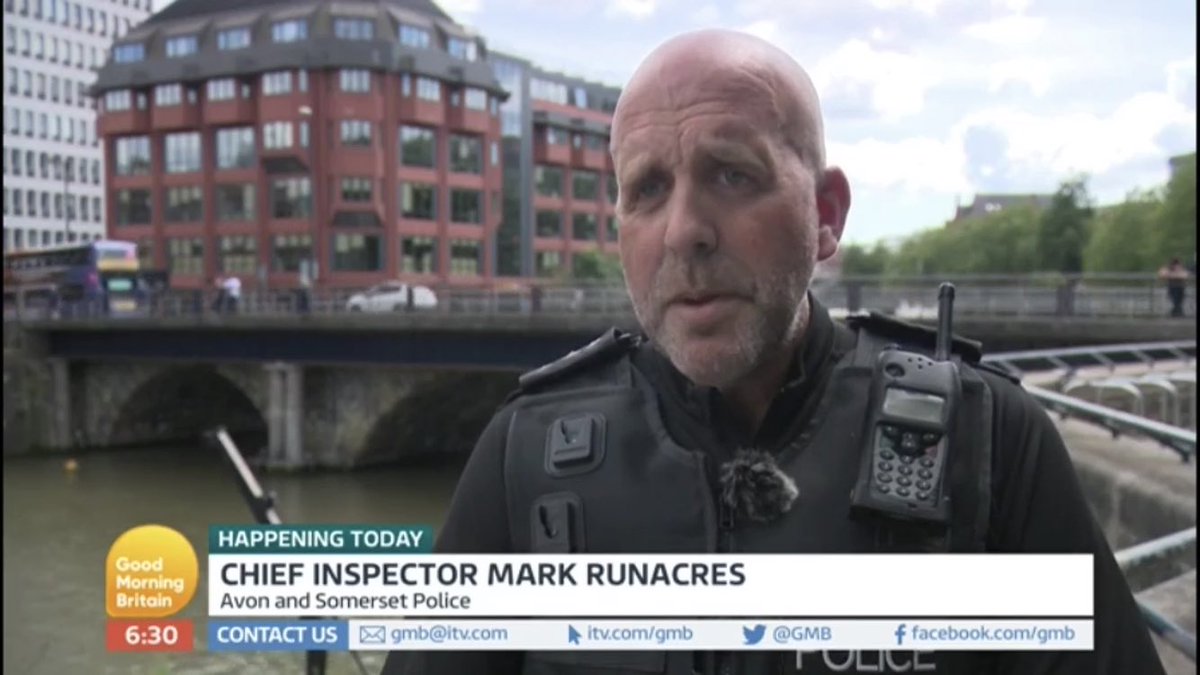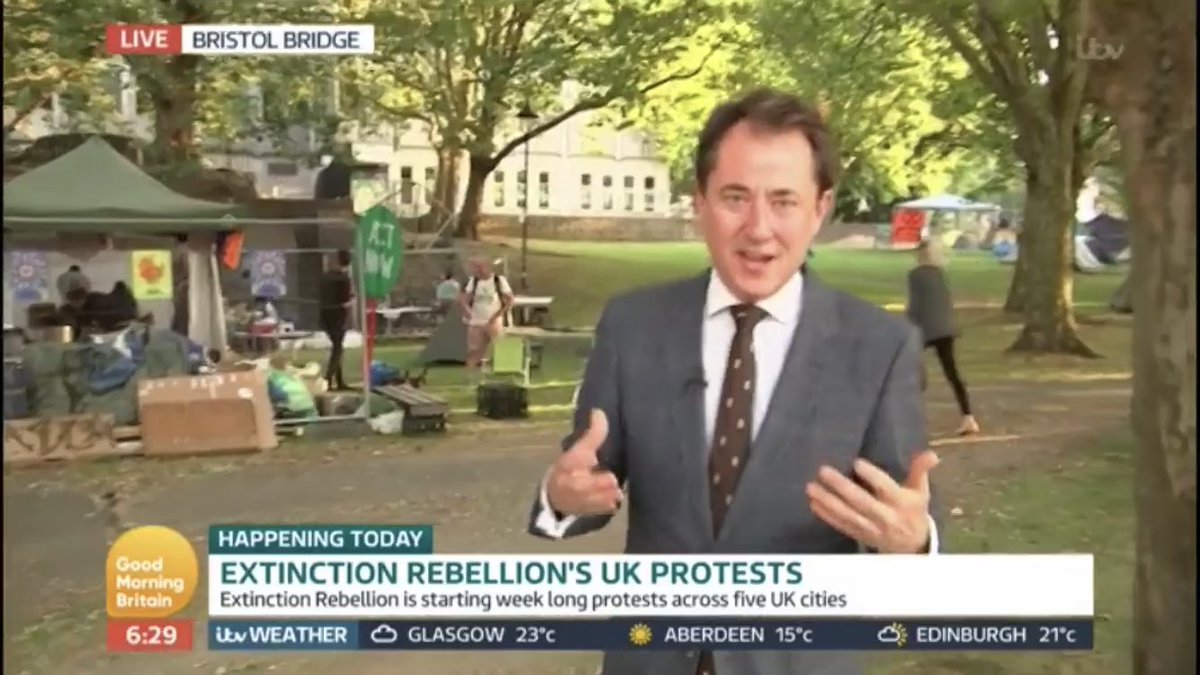If we continue our dismal climate policy efforts from 2030 to 2100, we are set for 2.7°C-2.9°C in 2100 (but will keep rising after 2100).
Just imagine if we tried to reduce emissions: 2.5°C is no problem, 2°C maybe, ...
1/
thebreakthrough.org/issues/energy/…
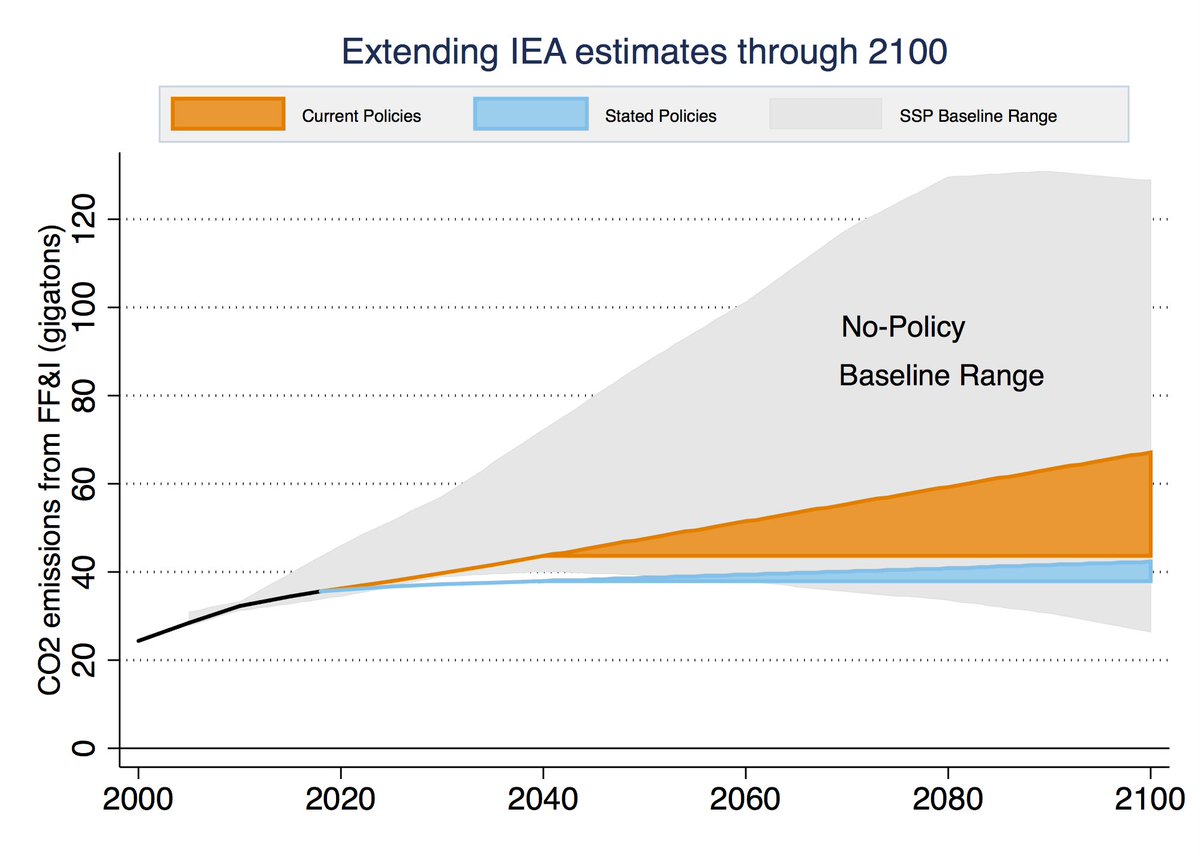
This is because climate impacts are often projected (& communicated) with a scenario call RCP8.5, which is deliberately structured to use fossil fuels & has *no* climate policy until 2100.
2/
If you consider a world where some countries do move away from fossil fuels & some countries even have climate policy, then emissions are much lower!
3/
4/

A quick back of the envelope, shows that 0.1°C is ~220GtCO₂. Do some rounding, 0.5°C is 1000GtCO₂ & 1°C is 2000GtCO₂. Each 0.5°C is a big step...
5/
cicero.oslo.no/no/posts/klima…
I would say equally, it is going to be bloody hard to get 4°C of warming, you have to burn a lot of carbon!
6/
cicero.oslo.no/no/posts/klima…
While 2.5°C may be "easy" by 2100, to keep temperature at 2.5°C is hard as emissions must be zero. The zero part could be tricky...
7/
cicero.oslo.no/no/posts/klima…
science.sciencemag.org/content/360/63…
8/
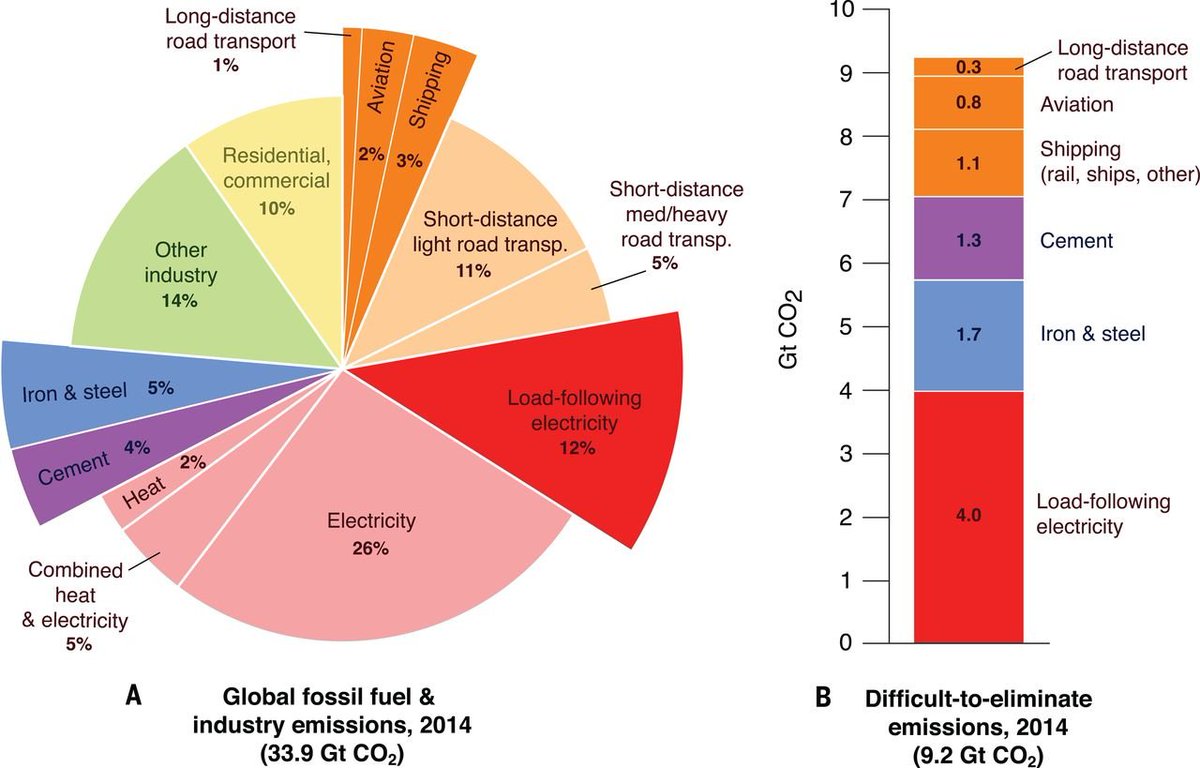
This figure shows what India says its emissions will do!
9/
cicero.oslo.no/no/posts/cicer…
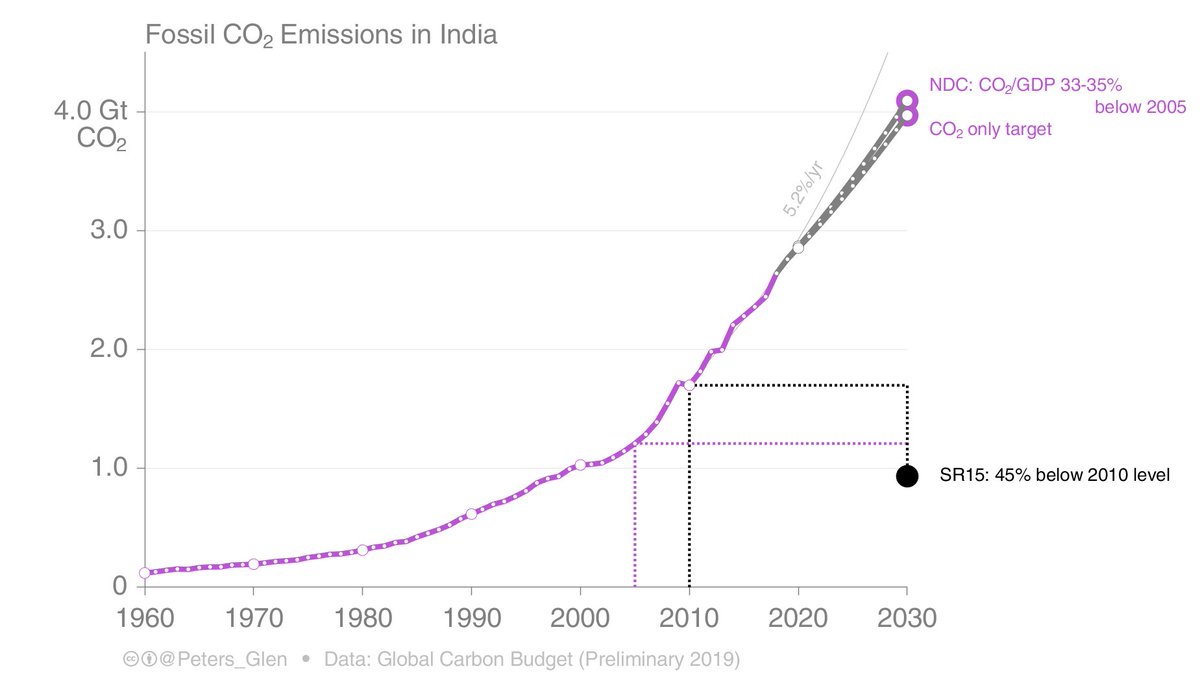
10/
cicero.oslo.no/no/posts/klima…
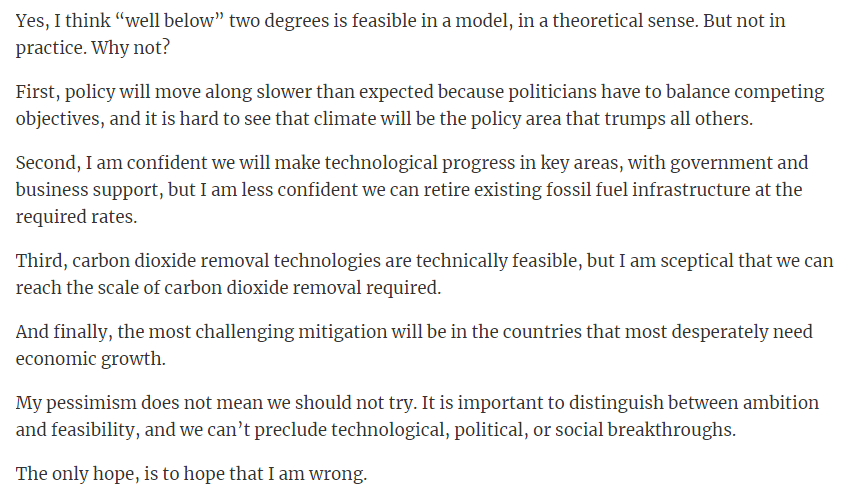
Now we are on for 3°C, let's shift up to 2.5°C, then 2°C, etc...
/end
thebreakthrough.org/issues/energy/…
1. Models do include feedbacks
2. There *could* be *additional* feedbacks not included or poorly modelled, but that is not a given
3. If there are nasty feedbacks we missed, yes, higher °C
4. Science is onto it


